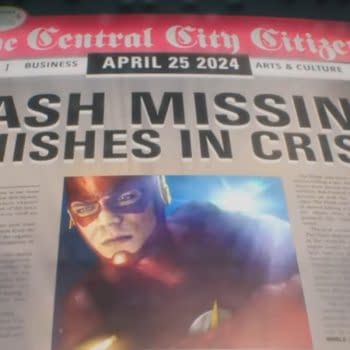Posted in: BBC, Doctor Who, TV | Tagged: 13th doctor, bbc, bbc america, bleeding cool, cable, doctor, doctor who, jodie whittaker, russell t davies, steven moffat, streaming, tardis, television, Time Lord, tv, william hartnell
"Doctor Who": A Celebration of All The Doctor's Regenerations [VIDEO]
We see what you're doing, BBC. You're trotting out these long compilations from Doctor Who to whet fans' appetite before you finally unveil the Series 12 trailer.
Of course it would be a collection of all the Doctor's regenerations. It's one of the touchstones of the show. It's the most unique gimmick in the history of television. When original Doctor William Hartnell had to leave the show due to deteriorating health, the producers didn't want to cancel the show.
It was one of the most popular shows in Britain after all. They invented regeneration in an act of desperation. Little did they know that they created a means for the show to go on forever. A completely new actor – or actress – could play the lead character every few years. The Doctor would be mortally wounded and regenerate into a new person.
The Multiple Meanings of Regeneration
This made Doctor Who a show that teaches children about death and letting go. Fans love their Doctor, and a regeneration scene is about loss and letting go, and renewal. The new Doctor – and actor – is a symbol of renewal and even the Buddhist concept of reincarnation. Regeneration here is a surprisingly subversive concept because it sidesteps the Judeo-Christian notion of dying and going to Heaven and Hell. Regeneration shows there is no real ending – the soul continues. The battle to do right continues forever.
Every regeneration scene means watching the evolution of television storytelling dynamics. The show had a tiny budget in the 1960s and 1970s, and the production had to find the most practical way to show it. By the 1980s, the same tropes were always used: the Doctor says his final words and bids farewell, then transforms. The seemed reluctant to get too emotional.

When the show returned in 2005 under Russell T. Davies, the regenerations became more elaborate and cinematic. The emotions were heightened, the regeneration became literally explosive, the music swells. Steven Moffat took it even further, given the Doctor a Shakespearean-level final speech a summing up, a eulogy. In a post-Buffy era of fandom, the show now dives deep into the death and rebirth of the Doctor to push an explosive emotional catharsis. And the show is richer for it.














